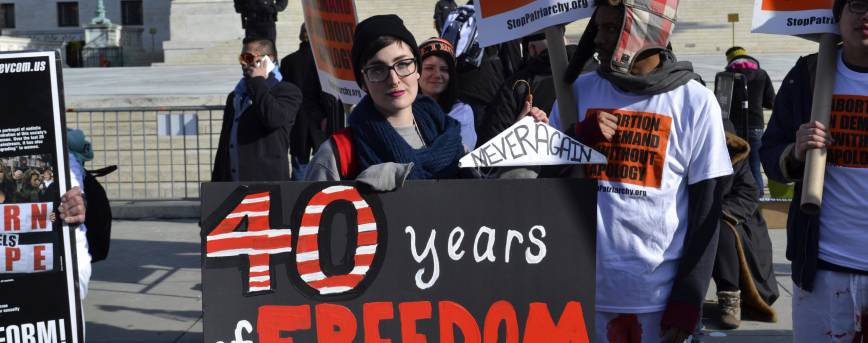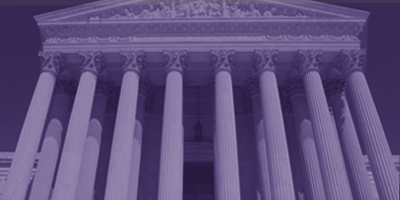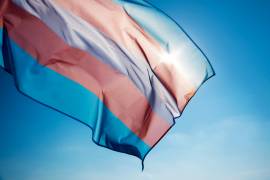
Why This Year’s Reproductive Freedom Supreme Court Cases are Important for LGBT People and Those Living with HIV
Blog Search

The rights of lesbian, gay, bisexual and transgender people (“LGBT”) and people living with HIV are on the line again this year before the United States Supreme Court.
Whole Woman’s Health v. Hellerstedt, argued on March 2, may be the most important abortion case in decades. The case involves a challenge to two provisions of a Texas anti-abortion law enacted in July 2013 that, if allowed to go into effect, would force the vast majority of Texas abortion clinics to close.
Zubik v. Burwell argued on March 23, is yet another challenge to the Affordable Care Act’s birth control benefit that puts at risk the contraception coverage of tens of thousands of employees. In Zubik, the Court will rule on whether the government’s attempt to arrange a way to exempt non-profit charities, schools, colleges and hospitals from the contraceptive coverage requirement of the ACA impermissibly burdens these non-profits’ religious exercise. The non-profits argue that the accommodation itself violates their religious liberty by making them “complicit” in a system that authorizes third parties to provide contraceptives to their employees at federal government expense once the non-profits have opted out of doing so themselves.
Why are these cases crucial to LGBT people and people living with HIV? Four reasons:
First, LGBT people need access to abortion services and contraceptives.
Among young women, studies show that lesbian and bisexual women are at least as likely as non-gay women to become pregnant, and a majority of lesbian women under the age of 25 choose to terminate their pregnancies.
Many women take contraceptives for medical reasons unrelated to preventing pregnancy, such as to treat endometriosis or reduce the risk for ovarian and uterine cancers. More than 50% of lesbian women have used oral contraceptives at some point in their lives. Additionally, bisexual women and lesbians may have consensual sex with men and require birth control for this reason as well. Further, transgender men need both abortion services and contraception, too.
Second, the landmark Supreme Court cases on which both LGBT people and women (whether LBT or not) depend for vindication of their constitutional guarantees of liberty and equality share a common doctrinal foundation.
For example, in Lawrence v. Texas, our 2003 Supreme Court victory that struck down all laws nationwide criminalizing intimacy between people of the same sex, and Obergefell v. Hodges, our 2015 victory striking down all remaining marriage bans, the Court relied heavily on due process precedents protecting women’s access to contraception, such as Griswold v. Connecticut and Eisenstadt v. Baird.
Additionally, a small but growing trend among courts and agencies recognizes that both gender identity discrimination and sexual orientation discrimination constitute unlawful sex discrimination under Title VII of the Civil Rights Act of 1964, and other laws. If the Court erodes any of these precedents, we all lose, and LGBT civil rights are at risk.
Third, as we explained in our friend-of-the-court brief in Whole Woman’s Health, women (whether LBT or not) and LGBT people all share a common history of discrimination and subordination in this country, including through application and enforcement of sex stereotypes.
LGBT people have an interest in challenging laws that require conformity with sex stereotypes or otherwise reinforce related double standards with respect to sexuality, marriage and parenting, as these laws so often work to the detriment of LGBT people.
LGBT people also are all too familiar with the ways in which laws interfering with individual autonomy in decisions about family life, intimacy and procreation stigmatize people and deprive them of equal dignity.
Women who exercise their fundamental right to abortion—approximately one in every three women by the age of 45—also can experience stigma for challenging deep-seated gender-based expectations about ideals of womanhood, including traditional stereotypes of women as mothers and self-sacrificing nurturers. Many women choose to keep silent about the fact that they have had an abortion, which prevents them from advocating effectively against passage of abortion restrictions.
As LGBT people know all too well, it is hard to protect yourself from measures designed to take away your civil rights when you feel pressure to remain in the closet.
Fourth, battling unwarranted religious objections to others’ sexuality, identity or conduct is a common fight.
In the friend-of-the-court brief we filed in Zubik, we ask the Supreme Court to reject the demand of non-profit organizations to strike down the accommodation for contraceptive coverage, explaining that the stakes are high for LGBT people and people living with HIV. Health care providers have used religious justifications to deny lesbian and gay people health care, deny treatment for HIV and deny transition-related care to transgender patients.
A loss for women in the contraceptive context in Zubik could set damaging precedent for all of us. LGBT people have a recent illustration of the way in which such a loss could do harm. Burwell v. Hobby Lobby involved a private corporation’s successful challenge to covering its employees’ contraception, but the case already has been cited in cases about LGBT people, including a case in Indiana seeking to strike down local ordinances prohibiting discrimination based on sexual orientation and gender identity, and numerous cases brought by businesses that refuse to serve lesbian and gay people.




